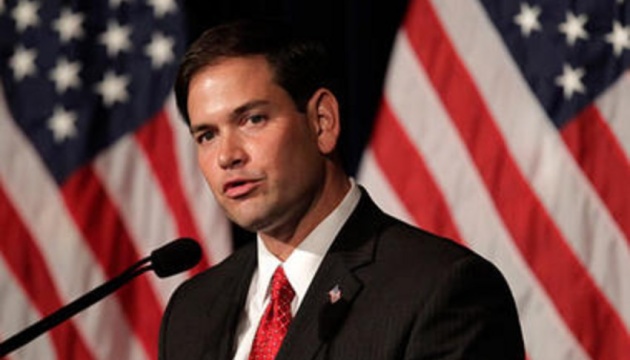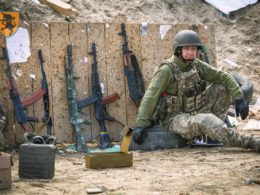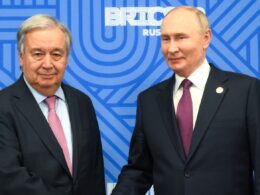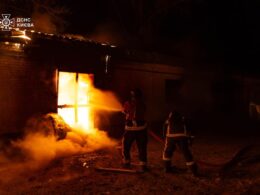US President Donald Trump may abandon efforts to broker a peace deal between Russia and Ukraine unless clear signs of progress emerge within days, according to Secretary of State Marco Rubio.
“We’re not going to continue with this endeavour for weeks and months on end,” Rubio said, adding that the US had “other priorities to focus on”.
Rubio’s comments came after the first round of multilateral talks involving the US, Ukraine, and European allies on 17 April in Paris. Until now, the Trump administration had been conducting separate consultations with Russia and Ukraine, sidelining Europe from the process.
The Paris meeting brought together Secretary of State Rubio and Trump’s envoy Steven Witkoff, who had met with Vladimir Putin in St. Petersburg just a week earlier. Ukraine was represented by its foreign and defense ministers and the influential head of the Presidential Office, Andrii Yermak. French President Emmanuel Macron participated alongside foreign ministers from the UK and Germany.
“I think it’s important to remind everyone that the war in Ukraine is a terrible thing, but it’s not our war. We didn’t start it. The US has supported Ukraine for over three years, and we want to see it end,” Rubio added.
During his campaign, Trump promised to end the war in Ukraine within 24 hours of taking office, later adjusting the timeline to achieving a ceasefire within six months. He has been pressuring both sides to negotiate, threatening harsher sanctions on Russia and a halt to US military aid to Kyiv.
Rubio meets Lavrov as Russia demands concessions
Three European diplomatic sources told Reuters that Rubio’s remarks reflect growing frustration in the White House over Russia’s unwillingness to compromise. Should Washington step back from the talks, negotiations would likely collapse, as no other country holds similar leverage over both Moscow and Kyiv.
Following the Paris talks, Rubio spoke with Russian Foreign Minister Sergey Lavrov and shared “certain elements” of the US peace plan, describing the meeting as constructive. Kremlin spokesperson Dmitry Peskov acknowledged some progress, too.
Moscow demands that Ukraine abandon its NATO ambitions, accept Russian control over four claimed Ukrainian regions, and agree to limit the size of its military—terms Kyiv considers tantamount to surrender.
The most tangible result of the peace efforts so far has been an informal ceasefire on strikes targeting energy infrastructure. On 18 March, following a phone call between Trump and Putin, Russia agreed to halt such attacks, and Ukraine made a similar commitment. However, both sides have since accused each other of violating the moratorium.
US, Ukraine push resource deal
Parallel to peace efforts, Ukraine and the US signed a memorandum of understanding on Thursday outlining their intention to establish an investment fund as part of a broader economic partnership. The goal is to finalize the deal by 26 April.
While specific details remain unclear, previous reports suggest the agreement may include not only mineral rights but also US oversight of Ukraine’s energy infrastructure, oil, and gas sectors. Ukraine possesses significant reserves of critical minerals, including 7% of Europe’s titanium, a third of its lithium deposits, and strategic elements like beryllium and uranium.
US Treasury Secretary Scott Bessent indicated that the full agreement, which spans about 80 pages, is nearly ready for signing following technical discussions held in Washington on April 11-12.
A previous attempt to finalize the agreement in February failed after an unsuccessful meeting between President Zelenskyy, Trump, and Vice President J.D. Vance at the White House.






